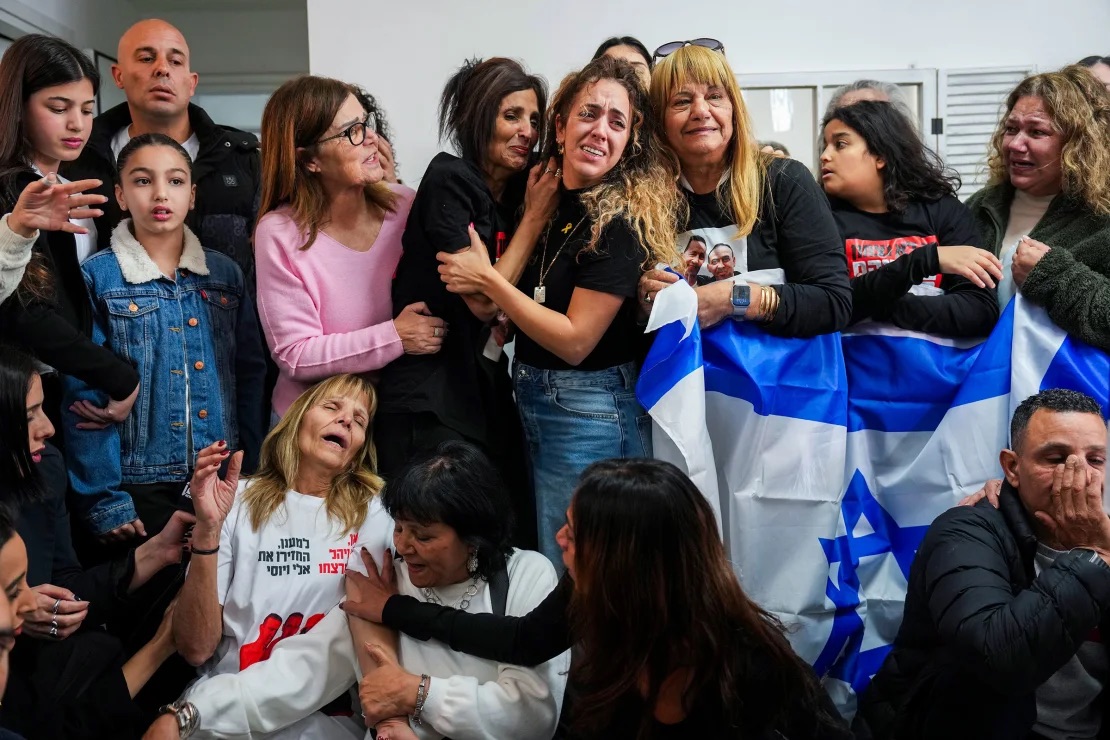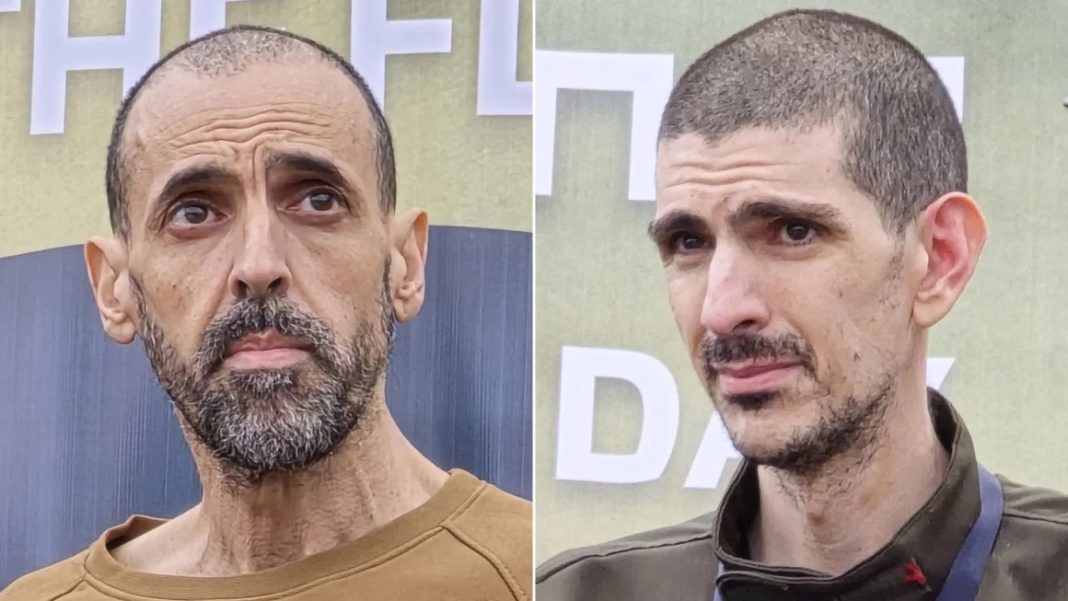TEL AVIV, Israel — For three Israeli hostages freed on Saturday after 16 months in Hamas captivity, the suffering did not end when they were paraded, gaunt and frail, on a stage in Gaza before their release to the Red Cross.
Only after their return to Israel did two of them discover the devastating news that some of their loved ones had not survived.
During his forced appearance at the handover ceremony, hostage Eli Sharabi had spoken of his hopes to reunite with his wife, Lianne, and their daughters, Noiya and Yahel.
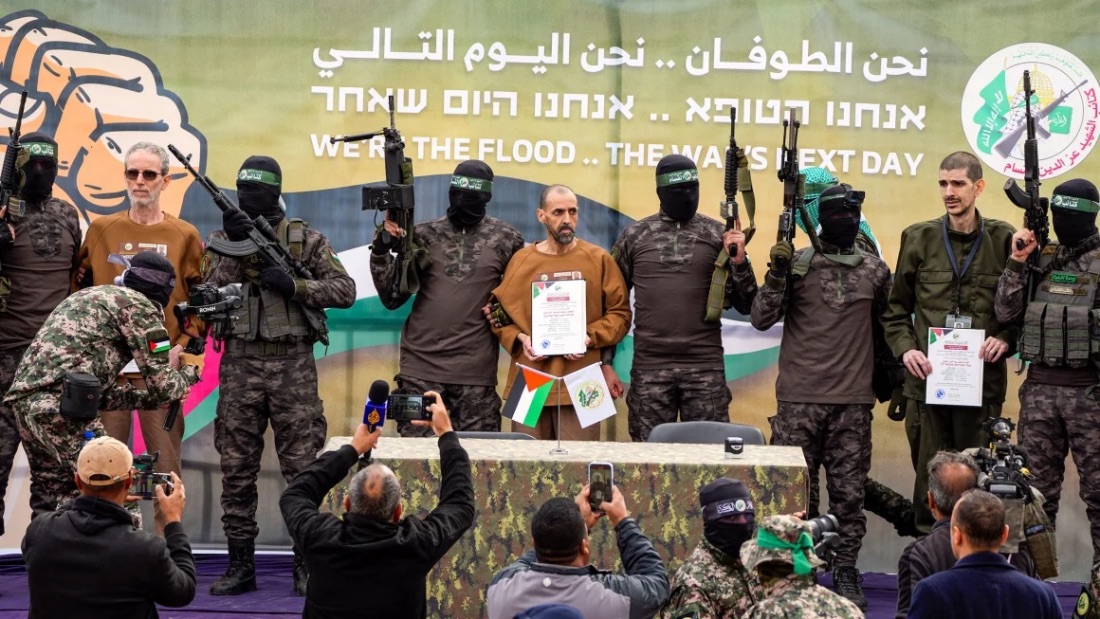
However, he learned upon his return that they had been killed during the Hamas-led attack on Kibbutz Be’eri on October 7, 2023.
His brother, Yossi, who was also abducted, had died in captivity in Gaza, where his body remains, according to Israeli authorities.
Or Levy, another of the released hostages, had suspected that his wife, Einav, had died but had been unable to confirm it while in captivity.
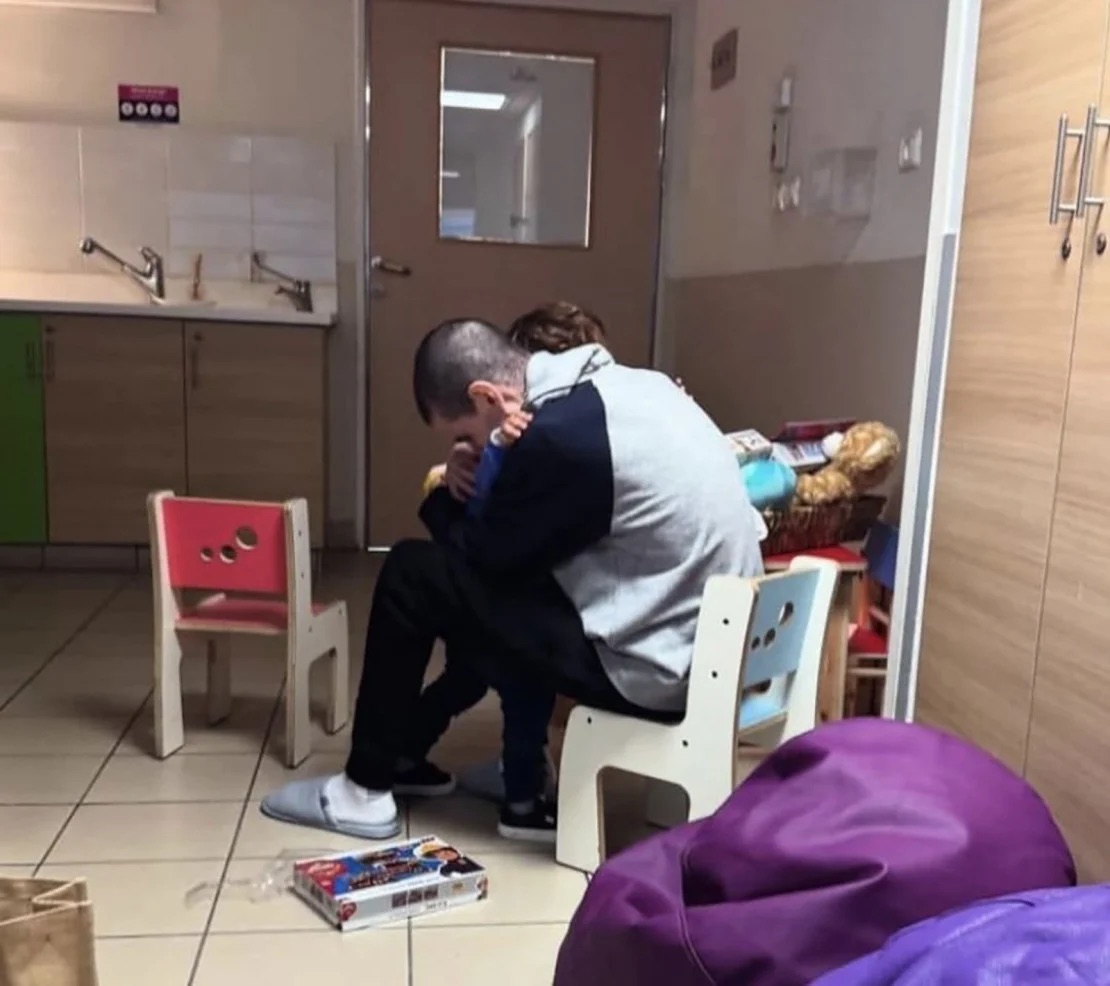
His mother, Geula Levy, told Israel’s Kann 11 News that after his release, Levy asked about Einav while being treated at Sheba Hospital.
“He did not know. He assumed, and asked, and we told him,” she said.
Levy, 34, had been taken hostage from the Nova music festival, where his wife was killed. Following his release, he was reunited with his young son, Almog, who was only two years old when his father was kidnapped.
“They came together as if nothing had happened,” Geula Levy recounted.

Hostage Release Raises Calls for Urgency
The release of the three men—Sharabi, Levy, and Ohad Ben Ami—has galvanized calls for a swifter resolution to the hostage crisis.
The parents of Hersh Goldberg-Polin, an Israeli-American killed by Hamas in Gaza in August, have urged U.S. President Donald Trump and his Middle East envoy Steve Witkoff to expedite the hostage release process.
In a video statement, Jon Goldberg-Polin implored the administration to push for the release of all remaining hostages this week, rejecting the current phased approach under the ceasefire agreement.
“Our plea to you right now is, now that you’ve done the hard part of getting movement, getting a deal started, let’s not think about phase one and phase two and phase three over many months,” he said. “Let’s think bigger and faster.”

Concerns Over Hostage Conditions
The appearance of the freed hostages has alarmed Israeli officials, who say that many of the remaining captives are in even worse condition.
Two Israeli officials told CNN that intelligence reports have indicated for months that male hostages have been subjected to harsher treatment than their female counterparts, with inadequate food and severe confinement conditions.
Sharabi, Levy, and Ben Ami looked visibly malnourished, and their condition drew condemnation from Israel.
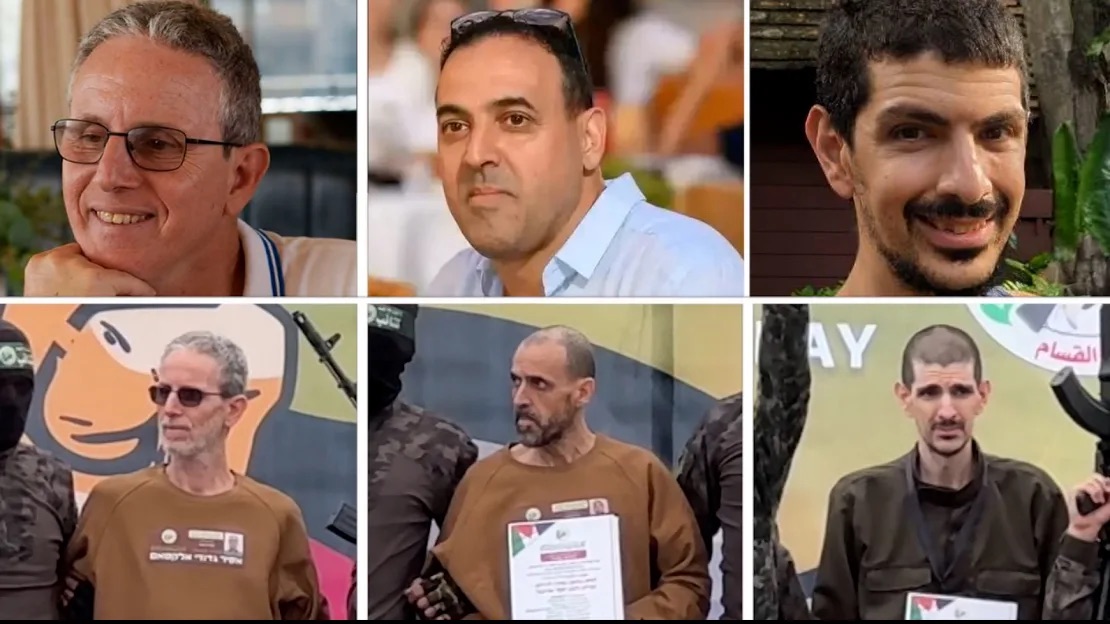
The Hostages and Missing Families Forum expressed horror at their physical and mental state, calling the images “shocking.”
The International Committee of the Red Cross (ICRC) also released a statement saying it is “increasingly concerned about the conditions surrounding release operations” and urged all parties to ensure “dignified and private” future releases.
Meanwhile, Hamas has postponed the next scheduled hostage release, accusing Israel of violating the ceasefire terms.
This delay has heightened concerns for the well-being of the remaining hostages still held in Gaza.
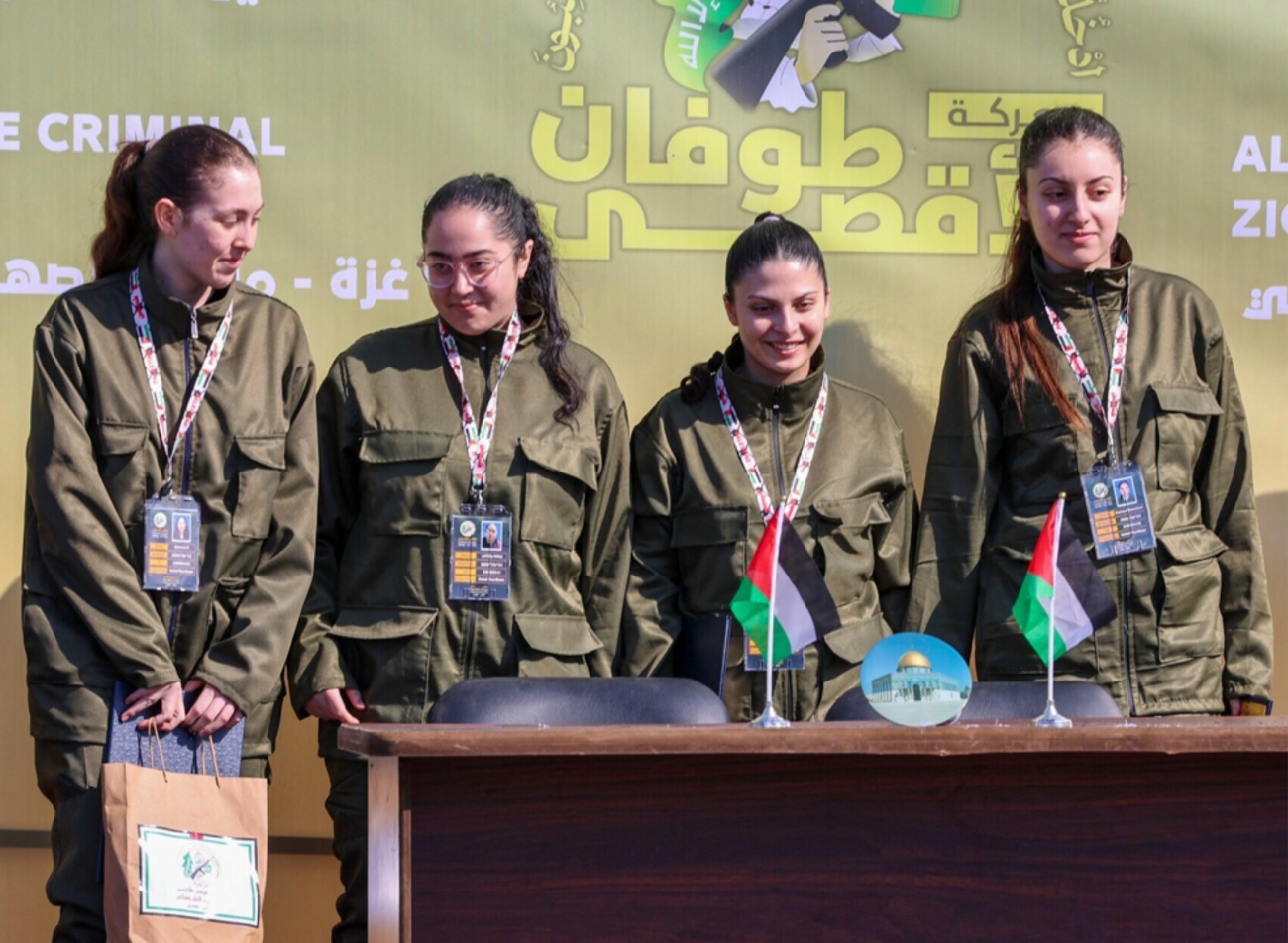
Negotiations and Uncertain Future
Under the current ceasefire agreement, Hamas has committed to releasing 33 hostages in the first phase of a six-week truce.
So far, five rounds of exchanges have taken place, and Hamas continues to hold at least 73 people abducted on October 7, as well as three others taken before the war.
However, negotiations for the second and third phases of the agreement have yet to begin in earnest.
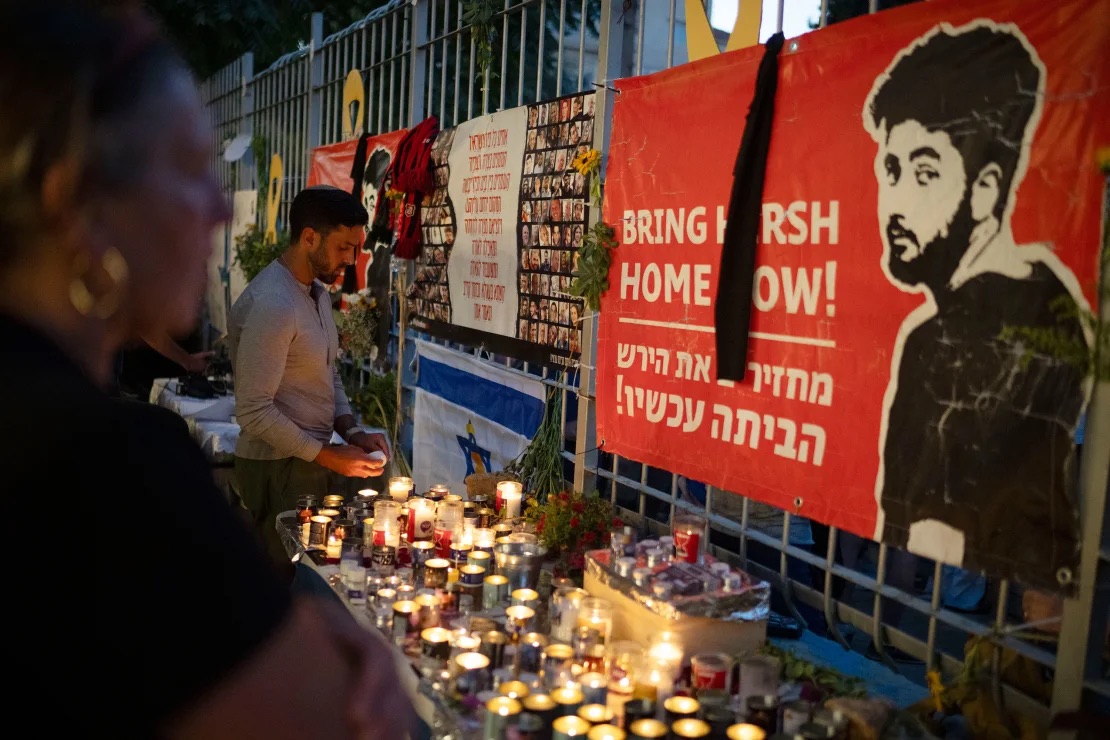
Prime Minister Benjamin Netanyahu’s government remains divided over how to proceed, with some officials pushing for renewed military action if Hamas does not uphold its commitments.
As Israel and Hamas navigate the fragile truce, the families of hostages and victims continue to endure an agonizing wait, clinging to hope that more loved ones will be returned home—though, as recent events have shown, some may never reunite.
